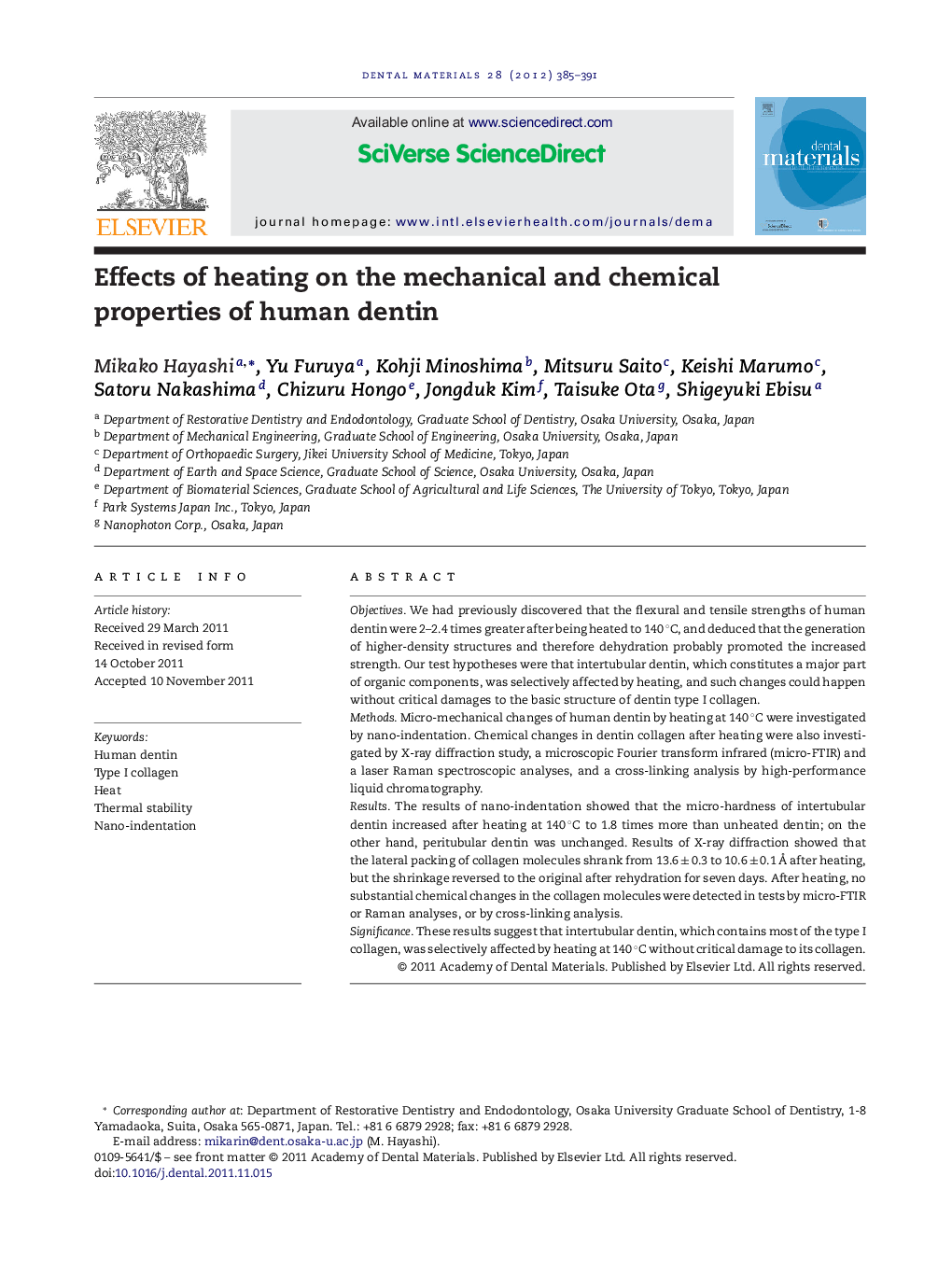| کد مقاله | کد نشریه | سال انتشار | مقاله انگلیسی | نسخه تمام متن |
|---|---|---|---|---|
| 1421132 | 986395 | 2012 | 7 صفحه PDF | دانلود رایگان |

ObjectivesWe had previously discovered that the flexural and tensile strengths of human dentin were 2–2.4 times greater after being heated to 140 °C, and deduced that the generation of higher-density structures and therefore dehydration probably promoted the increased strength. Our test hypotheses were that intertubular dentin, which constitutes a major part of organic components, was selectively affected by heating, and such changes could happen without critical damages to the basic structure of dentin type I collagen.MethodsMicro-mechanical changes of human dentin by heating at 140 °C were investigated by nano-indentation. Chemical changes in dentin collagen after heating were also investigated by X-ray diffraction study, a microscopic Fourier transform infrared (micro-FTIR) and a laser Raman spectroscopic analyses, and a cross-linking analysis by high-performance liquid chromatography.ResultsThe results of nano-indentation showed that the micro-hardness of intertubular dentin increased after heating at 140 °C to 1.8 times more than unheated dentin; on the other hand, peritubular dentin was unchanged. Results of X-ray diffraction showed that the lateral packing of collagen molecules shrank from 13.6 ± 0.3 to 10.6 ± 0.1 Å after heating, but the shrinkage reversed to the original after rehydration for seven days. After heating, no substantial chemical changes in the collagen molecules were detected in tests by micro-FTIR or Raman analyses, or by cross-linking analysis.SignificanceThese results suggest that intertubular dentin, which contains most of the type I collagen, was selectively affected by heating at 140 °C without critical damage to its collagen.
Journal: Dental Materials - Volume 28, Issue 4, April 2012, Pages 385–391